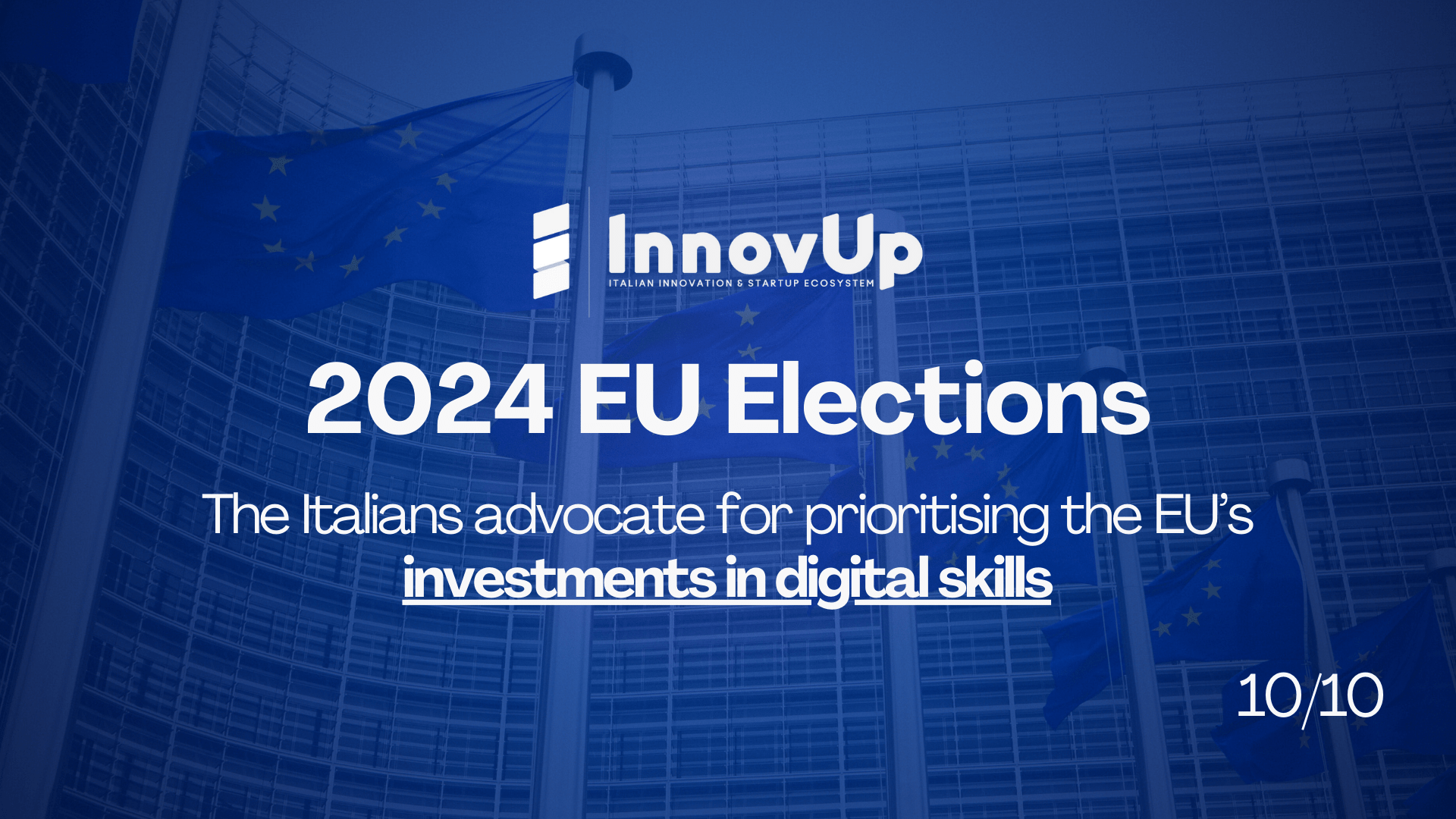Invest in programs to ensure European workers have the skills they need to compete in the global economy, and entrepreneurs have access to the talent they need to hire.
By Carola Cantaluppi, Public and European Affairs & Partnerships at InnovUp
The European Union (EU) is facing an ongoing digital transformation which requires workers to constantly acquire and develop new digital skills. Digital technologies and digital skills are indeed complementary: they reciprocally strengthen each other in pivoting innovation and economic growth.
The EU is currently undergoing a shortage of high-tech skills as well as the persistence of the brain drain phenomenon, making it increasingly less attractive to foreign workers. Because of this, the issue of skill mismatch – which results in the inability to acquire the necessary digital skills within the timeframe of technological transition – has been ranking high on the European policy agenda for a long time.
For instance, the European Skills Agenda sets the ambitious objective to ensure that 70% of 16-74 year olds have at least basic digital skills by 2025. Likewise, the European Social Pillar Action Plan’s target, also mentioned in the Europe’s Digital Decade compass, aims at having at least 80% of the European population with basic digital skills by 2030.
In light of this, it is extremely necessary that the EU continues to make significant investments in infrastructures and digital skills in favour of employment and employability. In this sense, attention should be particularly paid to startups and SMEs, which normally face more barriers in obtaining, developing and retaining skilled workers. For instance, by offering lower salaries and fewer opportunities, startups and SMEs are inclined to be less competitive than their international competitors. Hence, collective efforts between governments, the European Union, and the private sector are essential to construct a resilient digital network, accelerate the digitalization of public services and ensure that all European citizens have above-basic digital skills.
For instance, more generally speaking, the creation of new training programs at all levels of education would allow students and workers to have access to new educational possibilities and above all to more up-to-date academic and professional materials.
Specifically, to underpin competitiveness and resilience of European entrepreneurs at the global level, startups and SMEs should be supported to attract and train more skilled workforces and to continuously upskill and reskill their human capital. This can be accomplished, for example, through the creation and improvement of local knowledge providers such as universities, research centres, accelerators and incubators, competence centres or digital hubs.
The digital economy is not only a key element towards a more competitive EU but also to promote a more inclusive Union. According to the latest data, in Europe, 85% of General Partners of VC funds are men. At the same time, only 1% of funds were raised by all-female teams compared to 84% raised by all-male teams; 91% of male GPs have access to carried interest compared to 70% of women. There is also a persistent underrepresentation of women in C-suite roles of the funds, thus a weak female presence in the decision-making processes. All this clearly translates to fewer funding opportunities for female founders. To bridge these gaps, the EU must create an inclusive ecosystem that actively promotes diversity and equal opportunities. Implementing educational programs and mentoring initiatives to support women interested in pursuing a career in venture capital or entrepreneurship would provide the proper guidance and the necessary resources to help women build their confidence and required skills. Actively seeking and investing in women-led startups would diversify investment portfolios and recognize women’s entrepreneurial potential. Providing educational initiatives and resources for female entrepreneurs, such as workshops or acceleration programs, would strengthen their field knowledge. Successfully implementing these actions would indeed contribute to reduce the gender gap and achieve equity in this sector.
It becomes evident that to fully unlock the potential of the digital transition several policy changes should be implemented. In addition to previously mentioned proposals, harmonising stock option schemes would make startups more competitive and attractive, thus reducing the gap with large companies while also creating fair competition conditions across Europe. Additionally, in the case of startups, they need consistent visa regimes throughout the European Union to streamline and harmonise the procedures for hiring and attract foreign talent.
To conclude, investing in digital skills is a real priority that deserves the European policymakers’ attention to better align with the labour market demands and contribute to Europe’s global competitiveness.
Furthermore, it is essential to acknowledge how important is creating a level-playing field across Europe in order to stimulate the growth prospects of startups and help entrepreneurs secure their best employees. Afterall, it is impossible to lead innovation without the right talents in hand.
🇮🇹 Innovup is the no-profit and super partes association which connects, promotes, and represents the Italian ecosystem of innovative entrepreneurship: Startup seed, Scale-up, innovation centres, incubators, accelerators, startup studio, venture builders, crowdfunding platforms, scientific and technology parks, professional firms, consulting firms, and corporates.
InnovUp works to unite and foster the Italian innovative entrepreneurship system focusing on 3 main areas of activity: Advocacy (working groups, position papers, parliamentary hearings and ministerial discussions aimed at promoting favorable norms to development of innovative companies), Networking (working tables, association chats, events, roadshows aimed at connecting different players in the sector) and Knowledge (Founders Academy, observatories, reports, webinars, surveys and newsletters aimed at increasing knowledge about the ecosystem at national and international level). InnovUp is a member of IASP (International Association of Science Parks and Areas of Innovation), ESN (European Startup Network), EBN (European Business and Innovation Centre Network), EBAN (European Business Angels Network), AFS (Allied for Startups).

